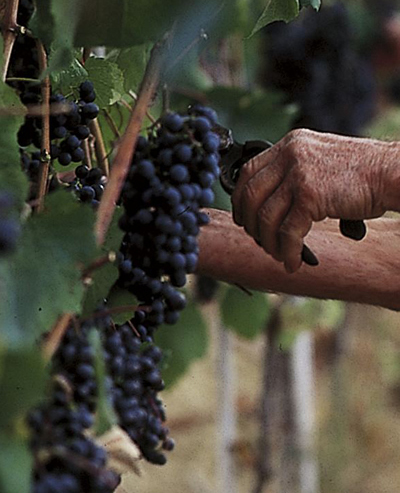HISTORY
Offida and Wine, An Ancient Bond
Halfway between the Adriatic coast and the foothills of the Apennines, the hills of Offida have always been suited to the cultivation of vines. In the Piceno hills, Offida’s wine-making tradition plays a central role, so much so that the former monastery of San Francesco in the town’s historic centre houses the headquarters of the Enoteca Regionale delle Marche. Since Roman times, wine production in the Picenes’ lands has been considered plentiful and of excellent quality. There are numerous testimonies by ancient historians, as well as profiles drawn by more modern historians such as Bacci.
Choosing to visit Offida today means offering the eye visual interweavings made up of rows of vines that follow one another, highlighting the slopes of an area that goes in beat and rise. Thus the oenological tradition flanks that of artisan production. Both share an ancient and fascinating history.
You cannot come to Offida and not take a tour of the cellars, those that offer guided tastings of wines and products of the land. It is the best way to sink into the roots of a territory, to listen to how it has changed and how it adapts to the challenges of today. Wine, even long-ageing wine, like our Offida DOCG Rosso never stays still. It evolves. And this is the taste of Piceno at the table, intense and generous. Aromatic and abundant. Unforgettable.
The evolution of a territory
To this day, the hills of Offida play a crucial role, being noted for the presence of producers attentive to preserving the quality of their products and viticultural heritage.
The production of a quality wine, in which the appellation serves as protection and confirmation, promotes an awareness of the land and makes it possible to sustain the richness of the landscape and gastronomy.
Winery visits and guided tastings provide an insight into how the taste of a glass of wine is enriched by so many factors and so many values.
Those in which the producer invests.
